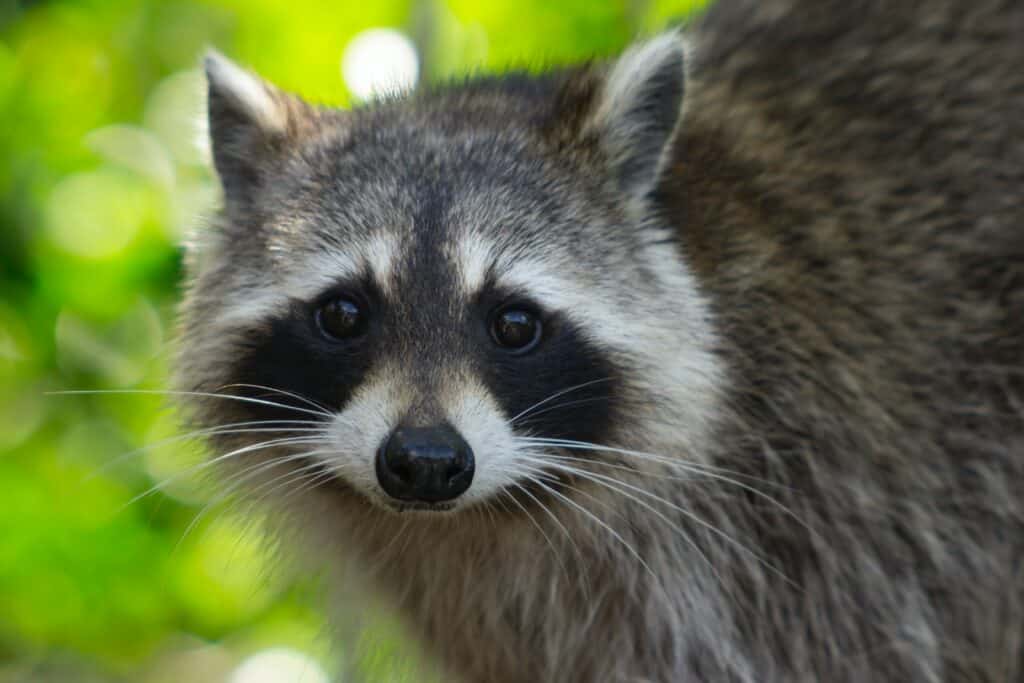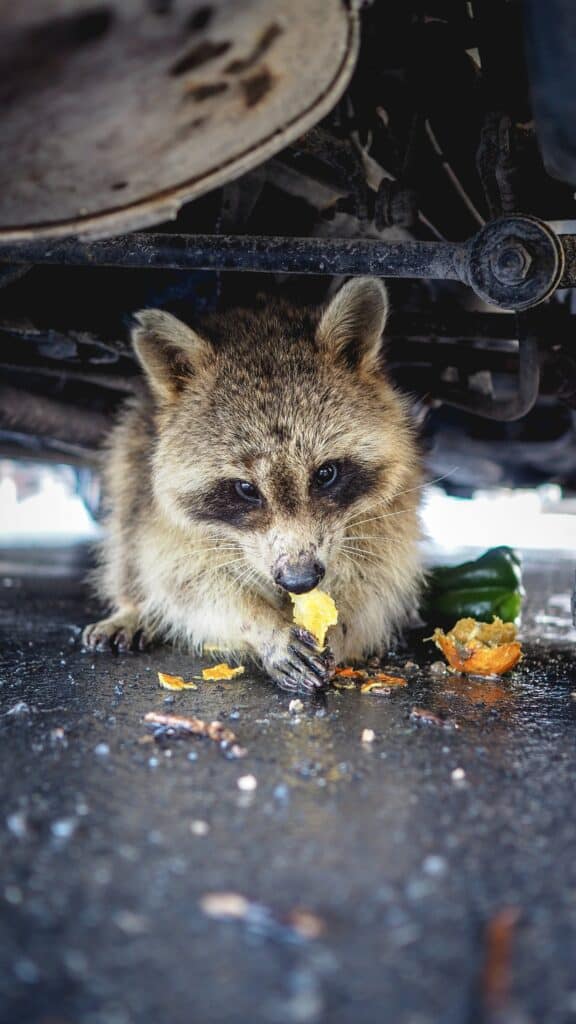Raccoon Solutions
Get A Quote Today!
Raccoons are medium-sized mammals known for their distinctive masked faces and ringed tails. While they are native to North America and play important roles in ecosystems, they can become a nuisance when they invade homes and cause property damage.
Understanding raccoon control, their characteristics, and implementing preventive measures can help manage and prevent issues associated with raccoon presence:

Types of Raccoons
There is one species of raccoon, scientifically known as Procyon Lotor, commonly found in North America. However, there may be regional variations in size and coat coloration.
Prevention Tips for Raccoon Control
Secure Trash Cans
Use tightly sealed, animal-proof trash cans or secure lids with bungee cords to prevent raccoons from accessing food sources. Consider storing trash cans in a secured area until trash collection day.
Remove Outdoor Food Sources
Keep pet food and water bowls indoors, especially overnight. Clean up fallen fruits or bird seeds from the ground, as they can attract raccoons.
Limit Access to Water Sources
Eliminate standing water sources in your yard, such as birdbaths or uncovered swimming pools. Raccoons are attracted to water and may use it as a resource.
Secure Entry Points
Inspect your property for potential entry points that raccoons can use to access your home. This includes securing gaps in foundations, vents, chimneys, and loose siding. Cover openings with mesh or hardware cloth.
Seal Trash Chutes and Openings
If you live in an apartment building or complex with shared trash chutes or openings, make sure they are properly sealed to prevent raccoons from gaining access to common areas.
Install Fencing
Install sturdy fences around your property, especially in areas where raccoons are known to be active. Use electric fences or add a wire mesh apron that extends at least a foot underground to prevent digging.
Treatment for Raccoon Control

Professional Wildlife Removal
If raccoons have already taken up residence in your home or property, it is recommended to contact a professional wildlife removal service. They have the expertise and tools to safely and humanely remove raccoons, especially in cases where there may be young or aggressive animals present.
Repellents
Raccoon repellents can be used as a deterrent in specific areas, but their effectiveness varies. Some common repellents include ammonia-soaked rags, predator urine, or commercial repellent sprays. However, these repellents may need to be reapplied frequently.
Noise and Light
Raccoons are nocturnal animals, so keeping lights and loud noises near their potential entry points can discourage them from settling in those areas.
Habitat Modification
Reduce potential hiding spots for raccoons by trimming tree branches away from the house and clearing brush or debris. Removing potential den sites such as woodpiles or unused structures can also help deter raccoons.
It is important to remember that raccoons are wild animals and may carry diseases, including rabies. Handling raccoons without proper training and equipment can be dangerous. Therefore, it is recommended to seek professional assistance when dealing with raccoon-related issues or concerns. At On The Fly Pest Solutions, we can guide effective control methods and ensure the safety of both humans and the raccoons themselves.
